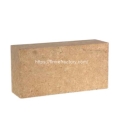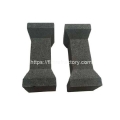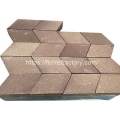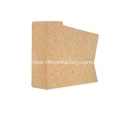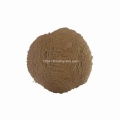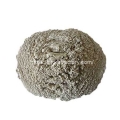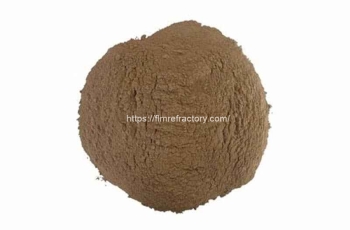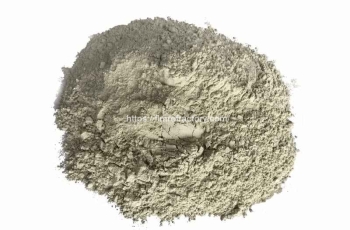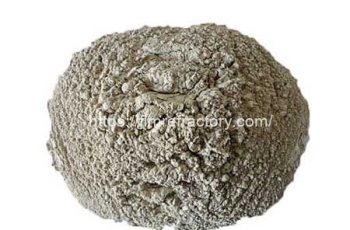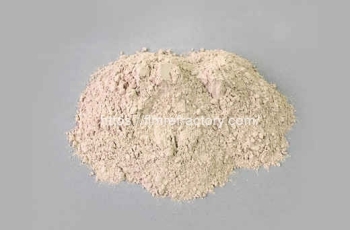- Performance. Innovation. Worldwide. Your trustworthy Refractories Manufacturing Partner--Fireramo
- +86 175 3769 7777
Silicon Carbide Mortar
- Category: Refractory Mortar
- |
- Author: Fireramo
Silicon carbide mortar is a versatile refractory for a variety of high-temperature applications. It is ideal for joining and repairing silicon carbide refractory bricks in a variety of industries.
- Origin: China
- Product Name: Fireramo Silicon Carbide Mortar
- Type: Refractory Material
- Refractoriness (℃): 1580< Refractoriness< 1770
- Sic: >75%
- Fe2o3: <2%
- Grain Size: 200~360 Mesh
- Production Capacity: 5000ton/Month
Search
Contact
High quality refractory bricks
Product Details
Silicon Carbide Mortar Refactory for Sale
Silicon carbide mortar is an monolithic refractory material consisting of silicon carbide particles, binder and additives that enhance its performance and workability. Its primary function is for joining or repairing silicon carbide bricks or other silicon carbide-based refractory products.


Features of Silicon Carbide Mortar
High temperature resistance
Silicon carbide mortar has excellent high temperature resistance for applications where the refractory lining is exposed to extreme heat.
Chemical stability
Silicon carbide mortar has good chemical stability against most acids, alkalis and molten metals. It is especially effective in corrosive environments where other materials may degrade or fail.
High bond strength
Silicon carbide mortar creates a strong bond between silicon carbide refractory bricks or components. It ensures that the joints are strong and durable and can withstand thermal stresses and mechanical loads.
Abrasion resistance
Silicon carbide mortar has excellent abrasion resistance for applications where the lining is exposed to abrasive materials or environments. It can withstand erosive conditions and maintain its integrity over time.
Applications for Silicon Carbide Mortar
Silicon Carbide Furnace Lining
Silicon carbide mortar is commonly used to repair or join silicon carbide bricks in all types of furnaces. Examples include furnaces for the production of ceramics, glass and non-ferrous metals. It provides reliable bonding and sealing to ensure the integrity of the furnace lining.
Kiln and incinerator linings
Silicon carbide mortar can be used to repair silicon carbide refractory bricks in kilns and incinerators.
Chemical Processing Industry
Silicon carbide mortar can be used in the chemical process industry, where it is used to line reactors, vessels and other equipment exposed to corrosive chemicals and high temperatures. Silicon carbide mortar is chemically resistant and thermally stable in these environments.
Foundries
Silicon carbide mortar is used in foundries to repair or join silicon carbide crucibles, ladles and other refractory components. It ensures the integrity of the lining and extends the life of the equipment.
Power generation
In power plants, silicon carbide mortar is used to repair or join silicon carbide refractory linings in boilers, furnaces and flues. It is resistant to high temperatures, thermal cycling and corrosive gases.
Silicon Carbide Mortar Specifications
| Property | Unit | Value | |
|---|---|---|---|
| Maximum Service Temperature | ºC | 1590 | |
| Bulk Density | g/cm3 | 1.9 – 2.6 | |
| Dried 110°C | MPa | >18 | |
| Cold Crushing Strength | >13 | ||
| 聽 | Fired at 1000ºC | ||
| Modulus of Rupture | Fired at 1000ºC | MPa | >15 |
| Grain Size | +355 µm | Wt % | 40 Min |
| -250 µm | 50 Max | ||
| Shrinkage at 110 ºC after 24 hours | % | 1.5 Max | |
| SiC | wt % | 84 Min | |
| SiO2 | wt % | 7 – 9 | |
| Al2O3 | wt % | 2 – 3 | |
| Fe2O3 | wt % | ||
| Others | wt % | 4 – 5 | |
| Water Requirement | wt % | 6 | |
Specializing in refractory materials for over 20 years, we provide professional refractory solutions for the global high temperature industry.
Related Posts:
Theme By Fireramo
